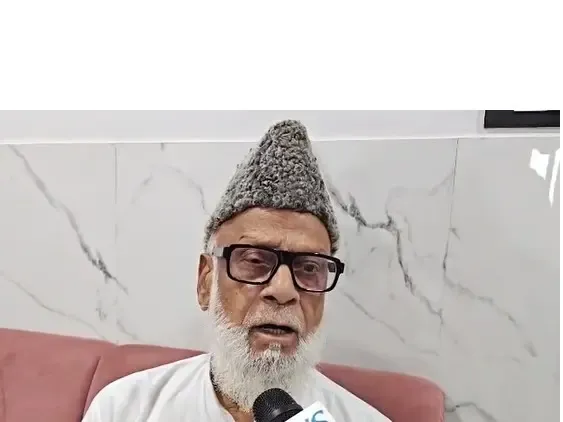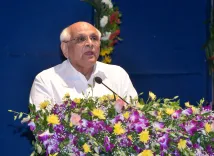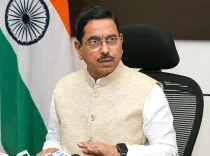Will Clerics Celebrate SC's Ruling on Waqf Act?

Synopsis
Key Takeaways
- Supreme Court stays provisions of the Waqf Act.
- Clerics express relief and hope for a favorable final verdict.
- Significant implications for Waqf property rights.
- Concerns over corruption and misuse of Waqf lands highlighted.
- Future deliberations expected from a larger bench.
New Delhi, Sep 15 (NationPress) As the Supreme Court issued a stay on specific provisions of the Waqf (Amendment) Act, several Muslim clerics expressed their contentment with the interim relief, emphasizing that their advocacy will persist until the ultimate ruling is delivered in favor of the Muslims.
The apex court, in its interim directive on Monday, refrained from placing a stay on the entire Waqf Act, highlighting that legislation is presumed constitutional and can only be suspended in exceptional circumstances.
However, a Bench led by Chief Justice of India B.R. Gavai and Justice A.G. Masih halted the provision that necessitated five years of practicing Islam for the establishment of Waqf, pending the formulation of regulations.
The court also paused the clause that granted a designated officer the authority to determine if a Waqf property encroached on government land, asserting that permitting an executive officer to rule on property rights would violate the principle of separation of powers.
In response to the ruling, Maulana Khalid Rasheed Firangi Mahali commented to IANS, "Concerning the Waqf Amendment Act, the Supreme Court has issued an interim order today. We have received considerable relief from this interim order. Although we sought a stay on the complete law, the relief granted is still significant. Our efforts will continue, as no final direction has been issued yet."
He noted that the stay encompassed the "five-year Islam practice condition" and clarified that "the CEO must be from the Muslim community," while also mentioning that "the overriding powers given to the District Collector for determining whether a property is a Waqf or not have also been stayed."
Mahali expressed that the suspension of Sections 3 and 4 was a "very welcome step" and voiced hope that the final ruling would be "in favor of Muslims."
The court also decreed that until adjudication by the tribunal, no third-party rights could be established against any entities.
Welcoming the ruling, All India Muslim Jamaat National President Maulana Shahabuddin Razvi Barelvi stated to IANS, "I appreciate the Supreme Court's decision. We had hoped that the apex court would rule with the welfare of poor, weak, helpless, orphaned, and widowed Muslims in mind."
"Once implemented, wealthy individuals who had unlawfully occupied Waqf lands will be evicted, and these lands will be allocated for the construction of schools, colleges, hospitals, mosques, madrasas, and orphanages, with the income generated benefiting widows, orphans, and impoverished Muslims," he explained.
"Waqf boards had become hubs of corruption, selling the lands at minimal prices. The rights of poor and weak Muslims were usurped by a few individuals on the Board. Now, we anticipate that the Board will be utilized for appropriate purposes. I commend the Supreme Court's decision," Barelvi added.
Mohammad Sulaiman, President of the Indian National League (INL) and founder of the All India Muslim Personal Law Board (AIMPLB), also supported the order.
"We had sought a stay on the Act entirely. While we appreciate the interim decision, we hope this will lead to a final ruling that suspends additional provisions. Partially, we are content," he informed IANS.
AIMPLB spokesperson Syed Qasim Rasool Ilyas described the order as "satisfactory."
"Not all our concerns have been addressed, but some critical points have been acknowledged. The five-year practicing Muslim condition remains, which is significant," Ilyas stated.
"This is an interim judgment, but a larger bench will soon deliberate. We hope that during that hearing, all other concerns will be taken into account. For now, we are satisfied," he added.
Maulana Chaudhary Ifraheem Husain also celebrated the development.
Speaking to IANS, he remarked, "We embrace this decision of the Supreme Court wholeheartedly. This will significantly benefit poor Muslims. The PM Modi-led Centre had introduced it, but numerous challenges existed. Now, with the Supreme Court's ruling, life will improve for poor and backward Muslims, whose rights were seized by a few influential individuals."
"We do not oppose any decision from the apex court as it supports the Muslim community," he concluded.








